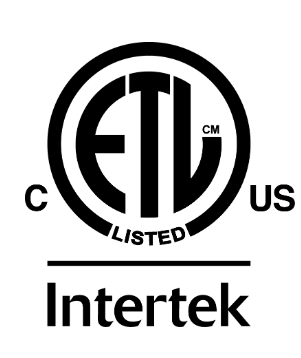
Products
Fast, Reliable, Everywhere

Solutions
Efficient, Innovative EV Charging Solutions.
News
We are committed to the innovation and application of EV charging.
The rise of electric vehicles (EVs) not only promotes environmentally friendly transportation but also places higher demands on charging infrastructure. Choosing the right home EV charging solutions is essential for ensuring efficient charging and a positive user experience. This article will explore different types of home EV charging solutions to help you make an informed decision.
The table below provides recommendations for home EV users based on initial equipment costs, installation fees, and long-term usage costs:
| User Group | Charging Solution | Initial Equipment Cost | Installation Fee | Long-term Usage Cost | Recommendation Reason |
| Budget-Conscious Users | Standard Home Charger (Level 1) | $200-$500 | $0-$100+ | Lower (Electricity Costs) | 1.Lowest initial cost: This EV charging solution is budget-friendly and easy to install. 2.It’s ideal for users with infrequent charging needs. 3.No professional installation is required as it uses a standard power outlet. |
| Frequent EV Users | High-Speed Home Charger (Level 2) | $500-$1,200 | $300-$800 | Medium (Electricity Costs and Maintenance) | 1.Faster Charging: Suited for users with high daily usage, this EV charging solution significantly reduces charging time. 2.Although the initial cost is higher, it offers greater convenience for frequent use. 3.Professional installation is necessary due to additional power system requirements. |
| High-End Users or Commercial Use | DC Fast Charger | $2,000-$5,000+ | $2,000-$5,000+ | High (Equipment and Electricity Costs) | 1.Extremely Fast Charging: Ideal for rapid charging needs or commercial use, this EV charging solution offers the most advanced charging experience. 2.Best for high usage or commercial settings. 3.Long-term investment: Suitable for those willing to pay more for the fastest charging speeds. |
Evaluate your charging needs based on your EV usage frequency and battery capacity.

1.Determine EV Usage Frequency
Usage frequency refers to how often you use your EV daily or weekly, and the driving distance. This factor is crucial for determining your charging needs.
2.Determine Battery Capacity
Battery capacity, measured in kilowatt-hours (kWh), indicates how much energy your EV’s battery can store. This capacity affects the EV’s range.
Before selecting an EV charger, it is essential to ensure that your home power system can support the power requirements of the chosen EV charging solutions. Here are the steps to check and ensure compatibility, along with the power requirements of common chargers and their matching with home power systems.
1.Charger Types and Their Power Requirements
Power Requirement: Uses a 120V power source, with a power output of approximately 1.4-1.9 kW.
Home Power System: Most home systems can meet this requirement without needing additional upgrades.
Power Requirement: Uses a 240V power source, with a power output of approximately 3.3-19.2 kW.
Home Power System: Requires a dedicated circuit and breaker. Check if your power panel has enough space and if cable specifications meet requirements. Power system upgrades may be necessary.
Power Requirement: Typically requires a 480V power source, with power up to 50-350 kW.
Home Power System: Usually used in commercial or public charging stations. Rarely used in residential settings; extensive power system upgrades would be required if needed.

2.Check Basic Conditions of Home Power System
Check Total Power Capacity: Home power system capacity is usually measured in kilowatts (kW). Check your meter or power service contract to determine your total power capacity.
Assess Existing Load: Calculate the total power demand of current household appliances to ensure there is enough capacity left after installing the EV charging solutions.
Inspect Power Panel: Ensure there are sufficient spare breakers or expandable space. Level 2 chargers typically need a dedicated circuit.
Power Voltage: Confirm that the power voltage matches the charger’s requirements. For example, Level 2 chargers need a 240V power source.
3.Consider Potential Upgrade Needs—Power System Upgrades:
Increase Power Capacity: If the current power system capacity is insufficient, you may need to contact the power company or a professional electrician to increase power supply.
Upgrade Power Panel: For high-power chargers, upgrading the power panel may be necessary to handle the additional load.
Cable and Breaker Upgrades: Ensure that all cables and breakers meet the power requirements of the EV charging solutions and upgrade if necessary.
Ensure that the selected EV charging solutions meet local safety standards and regulations. Professional EV charging service providers can ensure that equipment is compliant and safe.
Check Certifications and Marks
UL Certification: Choose chargers with UL (Underwriters Laboratories) certification. The UL mark indicates that the product meets rigorous safety standards. Look for the UL mark on the charger’s label or packaging.

ETL Certification: Similar to UL, ETL (Electrical Testing Laboratories) certification indicates that the product meets safety standards. The charger should bear the ETL mark.

CE Mark: Products sold in EU countries typically require the CE (Conformité Européenne) mark, indicating compliance with European safety, health, and environmental requirements.

Example—National Electrical Code (NEC) in the USA:
NEC 625: In the USA, the installation and use of EV chargers must comply with Part 625 of the National Electrical Code (NEC 625). This code specifically addresses installation and safety requirements for EV charging solutions.
With the increasing adoption of electric vehicles (EVs) and advancements in technology, home EV charging solutions are evolving towards smarter, more efficient, and environmentally friendly options. Here are some key future trends:
1.Smart Charging Technology
Smart charging technology is advancing rapidly to improve charging efficiency and user experience. Future smart charging technologies include:
2.Solar and Energy Storage Systems
The integration of solar and energy storage systems is transforming home EV charging:
By staying informed about these future trends, home EV users can better choose and optimize charging solutions, enhance charging efficiency, reduce energy costs, and support environmental goals.
Selecting the right home EV charging solutions is crucial for ensuring efficient and safe EV charging. By understanding different types of chargers, you can choose the most suitable solution based on your needs. As a contractor for EV charging stations and provider of EV battery storage systems, we offer professional EV charging solutions to ensure the highest quality charging options for you.
